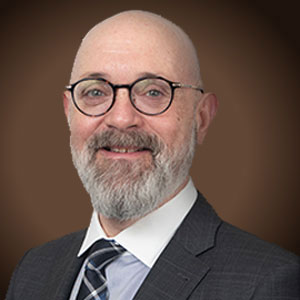IT'S NOT A MYTH: Medicaid Can Recoup Benefits Paid Out From An Estate When Someone Passes! Fewer things will send someone into a total panic faster than receiving a Medicaid Recovery letter in the mail. Imagine a family still grieving from the passing of a loved one getting a letter informing them that the government funds used for nursing home care for the deceased are owed and must now be paid back! In some cases, we are talking in upwards of hundreds of thousands of dollars here.
This very real concern arises from a longstanding but little-known aspect of Medicaid, the state-federal program that provides health coverage to millions of low-income and elderly Americans. In certain cases, a state has the right to recoup its medical costs by putting a claim on a deceased person's assets. Make no mistake, this includes the state of Virginia.
Under Medicaid law effective for all states, following the death of the Medicaid recipient a state can attempt to recover from his or her estate whatever long-term care benefits it paid out for that recipient's care. States also have the option of recovering all Medicaid benefits from individuals over age 55, including costs for any medical care, not just long-term care benefits. However, no recovery can take place until the death of the recipient's spouse, or as long as there is a child of the deceased who is under age 21 or who is blind or disabled.
While states must attempt to recover funds from the Medicaid recipient's probate estate, meaning property that is held in the beneficiary's name only, they have the option of seeking recovery against property in which the recipient had an interest but which passes outside of probate (this is called "expanded" estate recovery). This includes jointly held assets, assets in a living trust, or life estates. Given the rules for Medicaid eligibility, the only probate property of substantial value that a Medicaid recipient is likely to own at death is his or her home. However, states that have not opted to broaden their estate recovery to include non-probate assets may not make a claim against the Medicaid recipient's home if it is not in his or her probate estate.
In addition to the right to recover from the estate of the Medicaid beneficiary, state Medicaid agencies must place a lien on real estate owned by a Medicaid beneficiary during his or her life unless certain dependent relatives are living in the property. The state cannot impose a lien if a spouse, a disabled or blind child, a child under age 21, or a sibling with an equity interest in the house is living there.
Once a lien is placed on the property, if the property is sold while the Medicaid beneficiary is living, not only will the beneficiary cease to be eligible for Medicaid due to the cash from the sale, but the beneficiary would have to satisfy the lien by paying back the state for its coverage of care to date. In some states, the lien may be removed upon the beneficiary's death. In other states, the state can collect on the lien after the Medicaid recipient dies. Consult with a Certified Elder Law Attorney@ who specializes in Asset Protection in your state to see how your local agency handles this.
There are some circumstances under which the value of a house can be protected from Medicaid recovery. The state cannot recover if the Medicaid recipient and his or her spouse owned the home as tenants by the entireties or if the house is in the spouse's name and the Medicaid recipient relinquished his or her interest. If the house is in an irrevocable trust, the state cannot recover from it.
In addition, some children or relatives may be able to protect a nursing home resident's house if they qualify for an undue hardship waiver. For example, if a Medicaid recipient's daughter took care of him before he entered the nursing home and she has no other permanent residence, she may be able to avoid a claim against his house after he dies.
In certain situations, some options recommended in good conscience from attorneys who do not specialize, nor are actually certified in Elder Law to protect assets are in reality, short-term solutions that can be grossly inadequate to address larger long-term problems down the line. Consideration, care and the right approach for the specific situation are absolutely needed. Now more than ever, Asset Protection is key. As government health insurance coverage expands, the need for proper Asset Protection becomes even more important! The rules and regulations of Medicaid are quite complex, and no one should try to navigate the process without the right information and representation in their corner. If you or someone in your family have not started your planning already and are concerned about eventual nursing home care, it is crucial to consult with a Certified Elder Law Attorney to figure out the best way to plan for the future.
As you can see, you need a firm with the expertise and experience in dealing with the complexities of Asset Protection/Medicaid Planning! If you are worried about Medicaid recouping benefits after a loved one passes, reach out to us! Our firm can help your family when a loved one needs long-term care in the nursing home. Let's discuss how we can help! If you or a loved one are concerned about estate planning or other elder law matters including Asset Protection/Medicaid Planning or have questions regarding long-term care in the nursing home, reach out to us! Book a call with us on our website: www.VAElderLaw.com to get started. We have offices in Bassett, Danville and Lynchburg to serve you!
Reference: Medicaid.gov (March 13, 2023) “Medicaid Estate Recovery”



